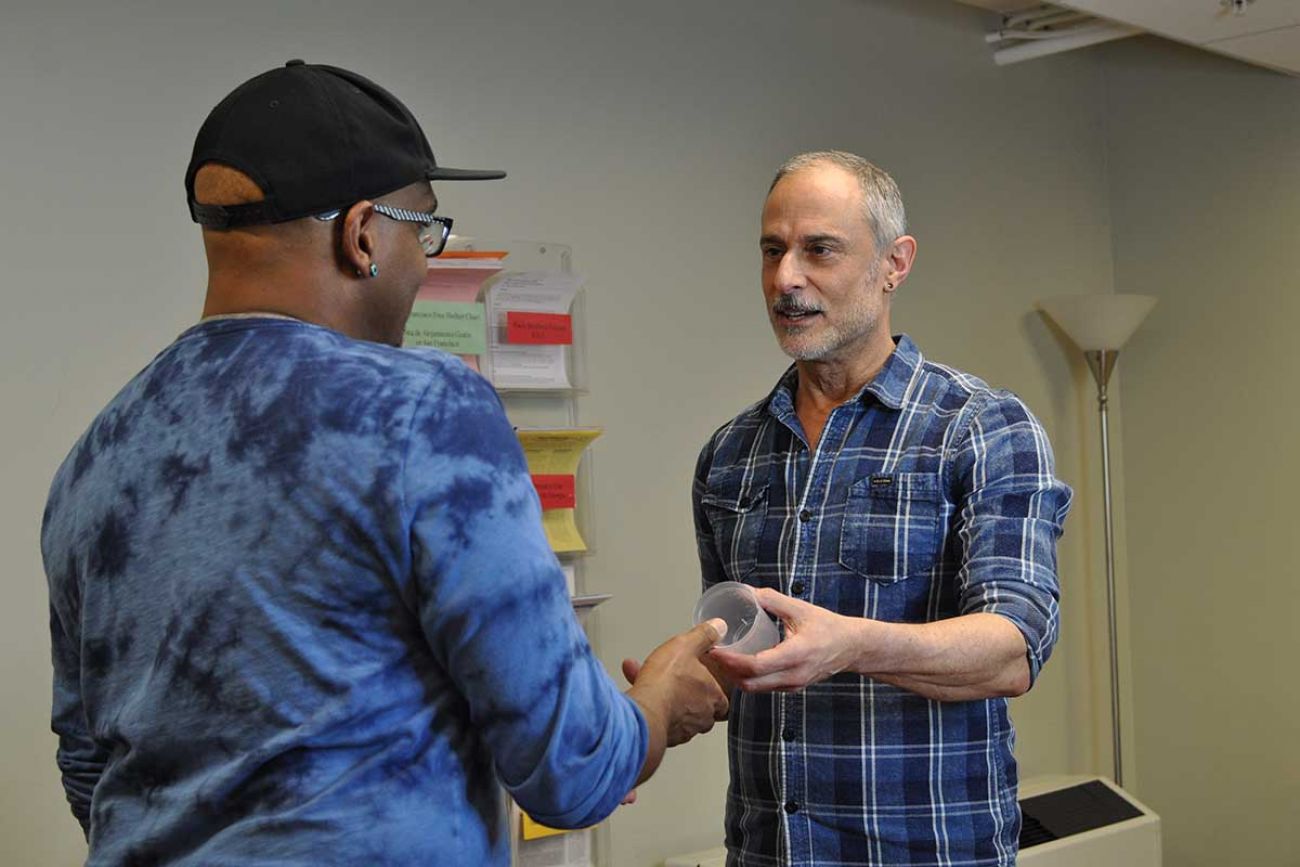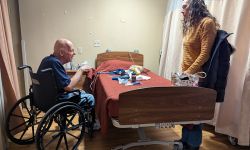Studies show meth addicts respond to $2 reward. What’s stopping Michigan?

For more than a decade, a San Francisco nonprofit has run a treatment regime for people addicted to methamphetamine that might seem hopelessly naïve.
Starting with an offer of $2 for the first clean urine sample, it offers clients a modest series of rewards that slowly rise by 25 cents with each clean drug test.
But over time, for former clients like Billy Lemon, these small incentives can be life changing.
Related:
- Lethal, highly addictive methamphetamine again stalking rural Michigan
- Did COVID fuel drug overdoses? Michigan deaths surged last year.
- Northern Michigan pushback to clean needle programs for drug users
Nine years ago, Lemon said he was addicted to meth when he entered outpatient treatment at the San Francisco AIDS Foundation. With three clean urine tests, plus a bonus, he earned about $15 his first week. But after 12 weeks and dozens of negative tests, he had a gift card worth $330 that signaled completion of the program.
That encouraged Lemon to want more sobriety, as he saw possibilities in his life that previously seemed out of reach.
"It was the first opportunity where I was like, ‘I have self-worth, still.’ It's buried. This person sees it and is willing to give me seven dollars, just to take care of myself. That was very motivating," Lemon said in a recent account of his efforts.
Lemon is now executive director of the Castro Country Club, a nonprofit that provides a hub of supports for San Francisco's queer recovery community.
The incentive-based treatment that altered Lemon’s life is called contingency management, because reward is contingent on staying clean. Research has found it to be an effective intervention for meth or cocaine addiction, especially when combined with other forms of support.
The treatment also is followed closely by researchers and recovery experts eager to help meth addicts. Unlike opioid addiction, there is no approved medication to treat people addicted to methamphetamine.
According to the San Francisco AIDS Foundation, a 2019 survey of clients who completed the reward program found 63 percent quit methamphetamine use and 19 percent reduced it.
Rick Andrews, associate director of its contingency management program, sees its success as closely tied to other support it offers clients both during and after they complete the 12-week program.
“A big majority go into counseling afterward,” Andrews told Bridge Michigan.
Even so, Andrews cautioned: “People are thinking this is a magic pill. Nothing is 100 percent. It works for some. It doesn’t work for other people.”
But for those it helps, Andrews said, the small cash reward seems to trigger patient buy-in to a broader universe of positive choices ─ an alternative to methamphetamine’s destructive brain-reward loop.
“It increases people’s self-esteem. It’s something like, ‘Yes, I can do this.’ Even if it’s not a lot of money, it motivates them.”
It appears few Michigan treatment agencies offer contingency management for methamphetamine, though a 2007 Michigan State University analysis of meth treatment noted its use in two rural counties — Allegan and Van Buren — among a range of other treatment strategies. The analysis concluded the program in Allegan County, while promising, was too new to evaluate, while it found that 65 percent of those fully enrolled in the VanBuren treatment program were either active participants or had graduated, with 35 percent terminated for non-compliance.
Anthony DeFulio, an associate professor of psychology at Western Michigan University, co-authored a 2020 review of studies on the treatment for meth users that concluded there “appear to be broad benefits of contingency management.”
And yet, DeFulio told Bridge, it’s barely used in Michigan — largely because Medicaid and private insurers don’t pay for it.
“There’s no general support for it,” he said.
“We have to do better,” DeFulio said. “People in the research community have been trying to disseminate this stuff for decades. But getting people to do anything other than what they have been doing is hard.”
In California, though, lawmakers are listening.
In September, the legislature gave bipartisan support for a bill that would allow that state’s Medicaid system to pay for contingency management treatment for methamphetamine users. If signed by Gov. Gavin Newsom, California would become the first state Medicaid system to approve the treatment.
California’s action was driven by a surge in deaths tied to methamphetamine, with deaths in Los Angeles County more than doubling over two years — from 650 in 2018 to nearly 1,400 in 2020. In San Francisco, the meth death rate jumped 8-fold from 2008 to 2018.
“We’re seeing meth overdose deaths skyrocket, and it’s clear that we need creative solutions for our addiction crisis,” the bill’s sponsor, state Sen. Scott Wiener, a Democrat serving the San Francisco area, said in a statement.
Some 30 years ago, Tyrone Clifford Jr., another program participant, tested positive for HIV, when infection was still thought by many to be an eventual death sentence from AIDS.
“My outlook on life was very bleak,” he told Bridge. “Then I found meth.”
That led to 20 years of addiction, and a life scraping by on disability checks. Then he checked into the outpatient treatment program at the AIDS Foundation.
He remembers counseling and peer support as crucial to his outcome. But he also recalls his first clean $2 test, and the one after that.
“The first $2 was like step one. The second $2.25 was step two. When I started, I planned to take the $330 and use it to get high. That changed by the end of the first month.”
Clean for a decade, and after years as a volunteer at the foundation, Clifford is now a paid counselor and helps others find a pathway out of meth addiction.
“When I started treatment I hadn’t worked in 15 years and I felt I would never be able to find work again,” he said. “So having this opportunity means the world to me.”
See what new members are saying about why they donated to Bridge Michigan:
- “In order for this information to be accurate and unbiased it must be underwritten by its readers, not by special interests.” - Larry S.
- “Not many other media sources report on the topics Bridge does.” - Susan B.
- “Your journalism is outstanding and rare these days.” - Mark S.
If you want to ensure the future of nonpartisan, nonprofit Michigan journalism, please become a member today. You, too, will be asked why you donated and maybe we'll feature your quote next time!








